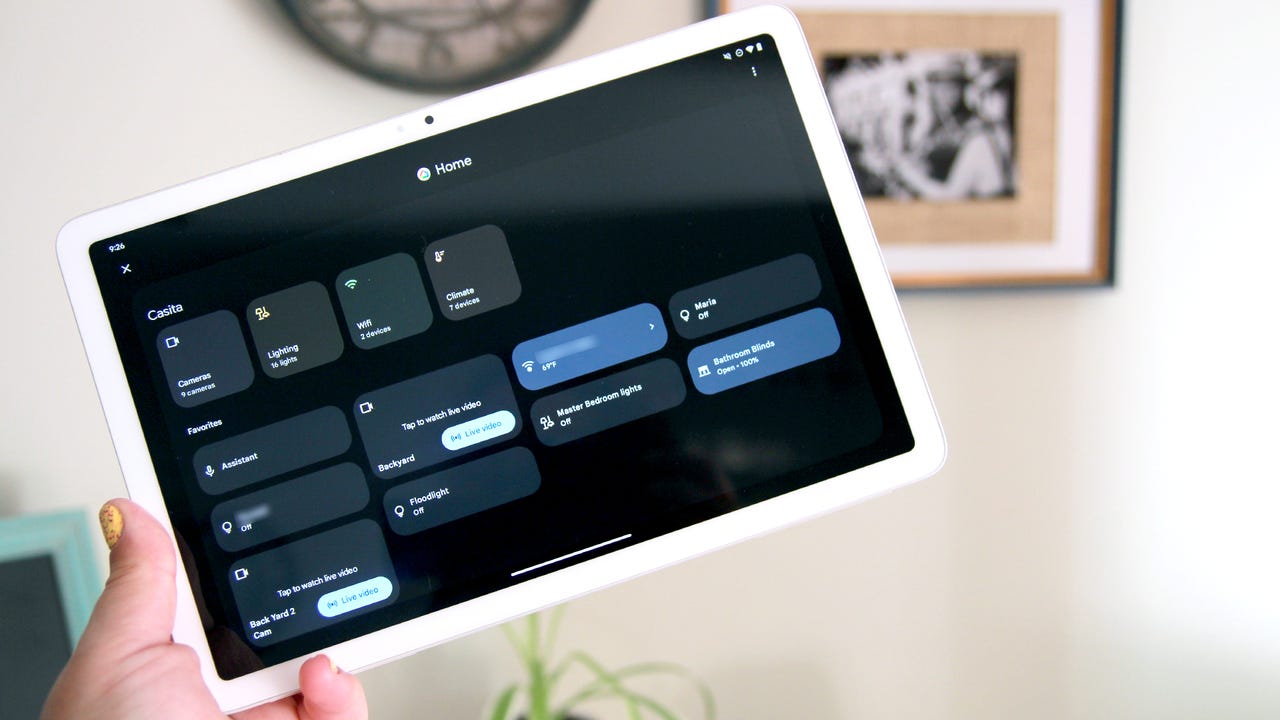
Google Home app on Pixel tablets.
Maria Diaz/ZDNET
Google announced the launch of the Home API, which gives developers access to over 600 million devices with Matter or Works with Google support. This enables developers, whether smart home device manufacturers or mobile app developers, to create smart home solutions for iOS and Android with Google Home integration and automation.
In expanding its Matter infrastructure, Google also announced that Google TV will now become a Matter controller with Google Home hub and local device control. Supported devices include Chromecast with Google TV, some Google TVs running Android 14 or later, and some LG TVs. Existing home hubs, such as the Google Nest Hub, can also route commands locally to Matter devices to reduce latency.
Related article: This robot lawn mower looks like a race car, but cuts a great lawn
Initial partners for Android app development include ADT and Eve Systems. The latter plans to release its long-awaited Eve for Android app once the Google Home API is live. This app allows users to directly add and control Matter devices without requiring fragile cloud-to-cloud integrations.
“Google Home APIs will accelerate the development of Eve for Android. They complement the set of tools our team needs,” said Jerome Gackel, CEO of Eve. “What has always set Eve apart is its seamless integration into the platform, without using the cloud or proprietary technology. Thanks to the Google Home API, we can offer the same on Android and work with Google. We are proud to move forward together.” ”
The Eve for Android app also provides energy consumption and power generation insights for Eve Energy solutions, autonomous heating schedules for Eve Thermo smart thermostats, and adaptive shading for roller blinds for Eve Blinds.
Related article: The 9 biggest announcements at Google I/O 2024: Gemini, Search, Project Astra, and more
By exposing the Home API, Google will enable more developers to create advanced and customized smart home solutions. This will make smart home technology more mainstream by making it easier for everyday users to access and benefit from smart home technology.
Home APIs allow developers to provide the same functionality to users regardless of mobile platform. This is true for smart home applications and other mobile apps. In its announcement, Google explained that developers can leverage the Home API to integrate with streaming and fitness apps.
Examples include connecting a workout app to control fans, connecting a vacation rental app to adjust guest home settings, and integrating with a smart lock to control lighting. .
Additionally, these smart string lights can stay on all year round and are cheaper than competing products.
Developers must also pass a certification process to use the Home API. iOS applications will be able to adopt the Home API through the Swift library.
The first apps using the Home API will be available this fall. Google says the Home API is available to these early access partners and there is a waiting list for developers to sign up.
ADT, another early access partner, is leveraging the Home API to implement a trusted neighbor feature that enables secure home access sharing.

